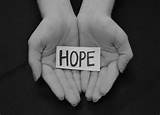514.223.5327
MAKE AN APPOINTMENTBuilding Hope
I have been reading Rick Snyder’s work on hope lately. He was one of the pioneers of hope theory research and positive psychology. He defines hope as having two components that he referred to as pathways and agency. Pathways being the capacity to come up with routes to desired goals, and agency being the will or motivation to use these routes. These essentially correspond to the “will” and the “way” of the old adage “where there’s a will there’s a way.”
There are reliable and valid measures of hope and there has been plenty of research correlating high scores on these hope scales to factors such as happiness, health, pain tolerance, and both athletic and academic success. Hope is a sense of potential. With it, we have more resilience in the face of challenges. The sense of possibility that hope provides naturally inspires the allocation of energy toward the things we want. This is why people with hope tend to eat more fruits and vegetables, practice safer sex, and exercise regularly.
Without hope, things are bad and we feel like they are never going to get better. This hopelessness is at the crux of depression and suicide.
If you would like to see how you fare on hope, use the scale shown below and choose the number that best describes you in response to the following eight statements. Definitely False (1), Mostly False (2), Somewhat False (3), Slightly False (4), Slightly True (5), Somewhat True (6), Mostly True (7), Definitely True (8).
1. I can think of many ways to get out of a jam. ____
2. I energetically pursue my goals. ____
3. There are lots of ways around any problem. ____
4. I can think of many ways to get the things in life that are most important to me. ____
5. Even when others get discouraged, I know I can find a way to solve the problem. ____
6. My past experiences have prepared me well for my future. ____
7. I’ve been pretty successful in life. ____
8. I meet the goals that I set for myself. ____
Scores can range from a low of 8 to a high of 64.
The good news is that hope can be learned. If you would like to increase hope for yourself try these strategies.
1) Make goals that correspond to your values to ensure that they are meaningful and important to you (and not what others want for you).
2) Determine the best pathway that can be broken down into steps. Start with the first step and then the next, and so on.
3) Consider the challenges you will face along the way and develop a game-plan to manage these as successfully as possible.
4) If your goals require learning new skills, then give yourself the time to do so.
5) When you stumble, use this as information to help you figure out a more effective path.
6) Encourage yourself with positive thinking (“I can do this”) and rely on your previous successes to inspire faith in your abilities.
Try taking the hope scale then give yourself a few months to practice these strategies and then take the quiz again. If you would rather talk about building hope with one of our clinicians, you can reach us at 514 223 5327.

